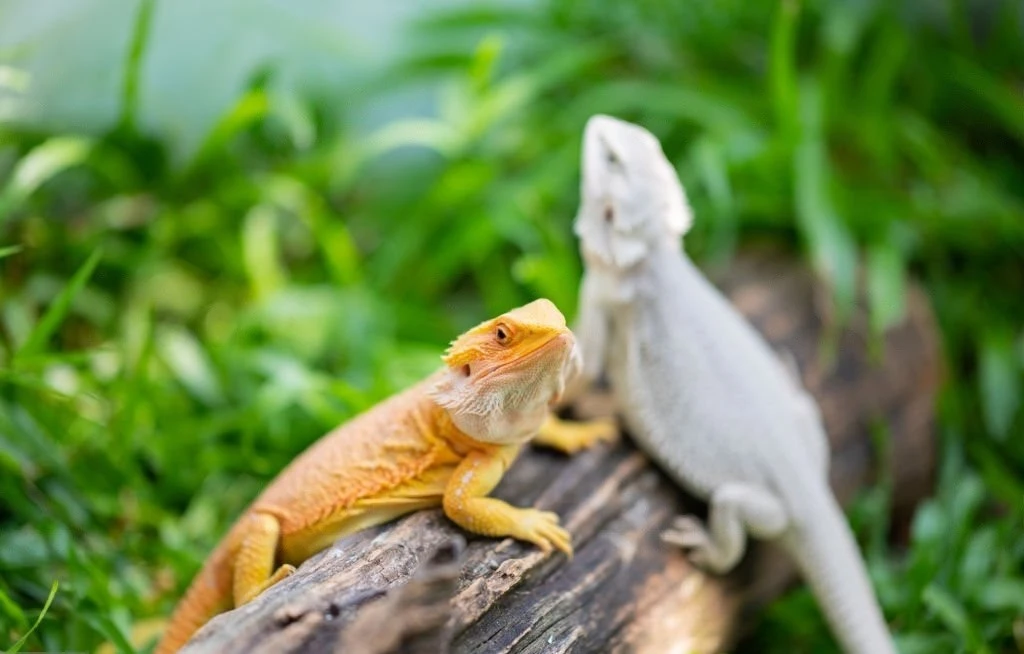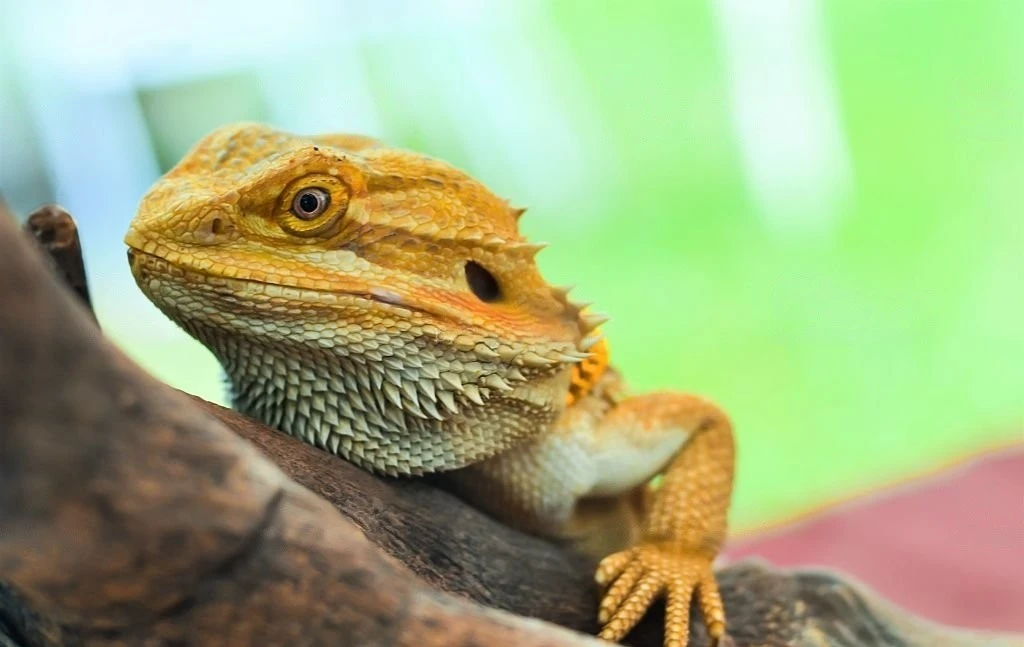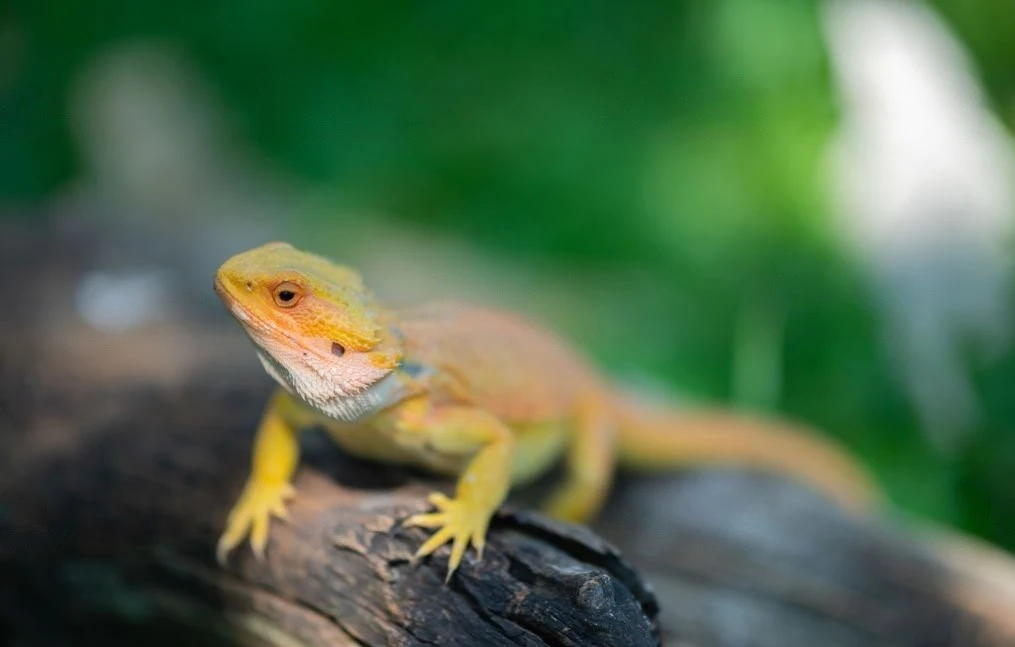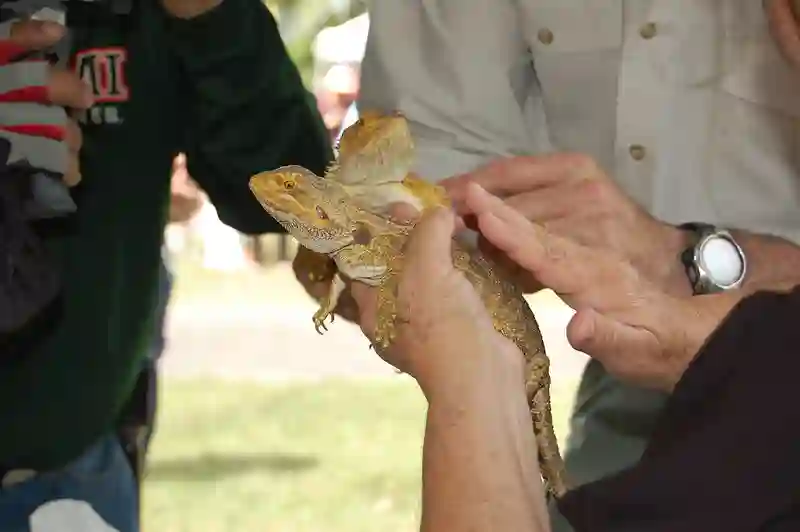Are you worried about determining whether your pet lizard is dead or just going through brumation?
Fear not for there are ways to figure out what’s really happening with them.
Your bearded dragon may sleep more, decrease its appetite, go to sleep earlier, hide in the shade, or poo less when it is in brumation.
In brumation, bearded dragons slow down their internal processes to conserve energy, much like hibernation.
But in case a bearded dragon is dying, it will lose its color, the eyes may drop down and it will have no movement at all.
In this guide, I’ll take you through a step-by-step process on how to identify if your bearded dragon is simply taking a break from life or has sadly passed away.
Understanding The Brumation
Brumation is a natural process for many reptiles, including bearded dragons, during which they slow down their activity level in order to conserve energy.
This usually happens during cooler months when food sources may become scarce or difficult to find.
A good way to tell if your dragon is just brumating is by paying attention to its breathing rate.
During brumation, a lizard’s breathing should remain normal and regular. If there are any signs of labored or shallow breaths, this could indicate that something else might be wrong with your pet.
If you notice any discoloration on the skin of your beardie like pale patches or darkening around the eyes then these too could signify other problems such as illness or infection rather than typical hibernation behaviors.
How Long Does Brumation Last?

A bearded dragon’s brumation can last anywhere from a few weeks to months depending on its size, age, and health. The brumation process can last an astounding 10 months in some cases – a veritable eternity.
Environmental factors can also affect the length of brumation, such as temperature, humidity, and photoperiods (length of daylight).
It’s required to note that, each beardie has specific needs when it comes to the length of time they choose to stay in their particular brumation cycle.
Do Bearded Dragons Eat During Brumation?
During brumation, beardies may not eat or move around much due to decreased activity levels and reduced metabolism.
It is fine if your bearded dragon doesn’t eat during brumation, but he may wake up briefly to drink water.
Bearded dragons should be offered food around once a week during this period, but refusing to eat isn’t a big deal.
How To Tell If Bearded Dragons Are Dead, Or In Brumation
It’s important to know whether your bearded dragon is dead or in brumation.
To figure it out, you’ll need to pay close attention to a few key signs and behaviors.
| Signs/Behaviors | Dead Beardie | Brumating Beardie |
|---|---|---|
| Body Temperature | Cold & Lifeless | Cool & Lethargic |
| Eating Habits | None | Reduced Appetite |
| Activity Level | Inactive | Low Energy Levels |
| Signs of a Dead Bearded Dragon |
|---|
| Limp or unresponsive body |
| Eyes sunken or closed |
| Mouth agape or closed tightly |
| Tongue not moving |
| No signs of breathing |
| No reaction to touch or movement |
| No response to stimuli, such as loud noises or bright lights |
| Foul odor |
| Discoloration or bloating of the body |
| Loss of appetite for an extended period |
| Lack of bowel movements for an extended period |
| Skin shedding irregularly or not at all |
| Unusual behavior or activity before death, such as lethargy, aggression, or unusual movement patterns |
| Signs of Brumation in Bearded Dragons |
|---|
| Reduced activity level |
| Decreased appetite |
| Sleeping for longer periods of time |
| Spending more time hiding |
| Darkening of skin color |
| Weight loss |
| Reduced bowel movements |
| Decreased interest in basking |
| Becoming less responsive to stimuli |
| Digging or burrowing behaviors |
| Decreased body temperature |
| Decreased metabolism |
| Slowing down of bodily functions |
| Prolonged period of inactivity, lasting weeks to months |
| Normal behaviors resume in the spring when temperatures increase |
Paying attention to these signs can help you determine whether your beloved pet is dead or simply brumating.
How To Care For Your Dragon In Brumation

Here are five key things you should keep in mind when trying to care for your dragon during brumation:
- Monitor temperature: Brumating dragons require lower temperatures than normal, so it’s vital that you monitor the temperature in their enclosure. Make sure there is plenty of ventilation and no drafts and check regularly that their basking areas remain warm enough.
- Reduce diet: During brumation, your dragon may not eat as much as usual – which is completely natural! Reducing their food intake gradually can help with digestion issues and also helps them conserve energy while they sleep
- Check habitat cleanliness: With less activity going on in the enclosure, it’s essential to make sure everything remains clean and free from bacteria. Checking daily for debris like uneaten food or feces can prevent any potential health problems for your dragon.
- Provide supplemental light: As brumating dragons tend to be inactive most of the time, providing additional lighting can help regulate hormones and ensure healthy growth patterns throughout the year.
- Introduce enrichment activities: Even though your dragon may be sleeping more often than usual, introducing small activities such as playing music or offering treats every now and then can give them something special to look forward to each day!
It’s important to remember that even though brumation may seem daunting at first, it’s actually quite beneficial for your pet – allowing them to rest more deeply while conserving energy until warmer weather returns again.
How To Get A Bearded Dragon Out Of Brumation

To wake up a sleeping dragon out of its brumation safely and effectively, slowly increase its temperature over a few days by around 5 degrees Celsius (9 Fahrenheit).
Additionally, ensure adequate hydration before attempting any further stimulation as dehydration is one of the more common causes of death among reptiles while in hibernation.
Once the environment has been properly heated, try enticing the reptile with food items like crickets or mealworms to encourage movement and activity levels.
Keep in mind though that it might take several weeks for them to fully recover from the brumation process and resume normal behaviors again.
If all else fails and you suspect something might be wrong with your pet, consult an experienced veterinarian immediately as prompt intervention could save your beloved scaled companion’s life.
Conclusion
In conclusion, it can be tricky to differentiate between a bearded dragon in brumation and one that has passed away.
Remember: when it comes to bearded dragons, don’t panic!
With proper knowledge and understanding of their natural behaviors like brumation, you’ll be able to easily distinguish whether they’re dead or just taking a long nap – the key is being observant and using common sense.
